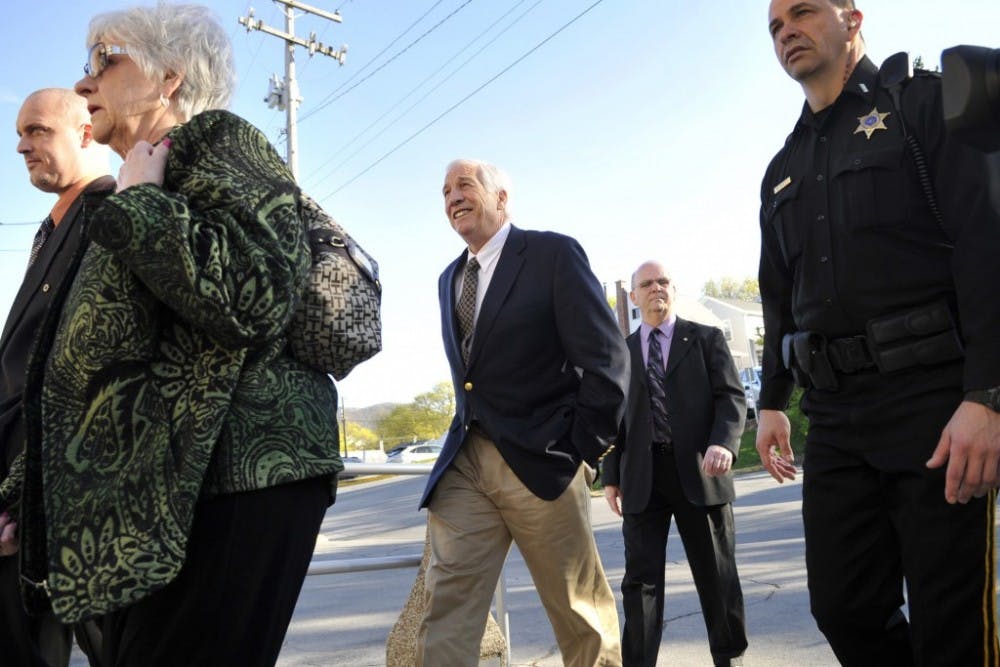The Freeh investigation into Penn State’s sexual abuse scandal shed cold light on the dark circumstances surrounding Jerry Sandusky’s rape and assault of 10 young boys over a 15-year period, an unthinkable series of crimes that also besmirched the legend of the late Joe Paterno and the football program that rose and fell as he did.
Perhaps the most chilling information released in the report suggests Paterno wasn’t the only person to turn a blind eye as Sandusky assumed his degenerate alter ego. The investigation revealed a circle of secrecy surrounding Sandusky, a circle that both widened and strengthened for over a decade.
In Pennsylvania, the failure to report child abuse is a punishable offense, and several high-ranking Penn State officials, including former vice president Gary Schultz, and suspended athletic director Timothy Curley, are now facing criminal charges. But not every state prosecutes those who fail to report child abuse.
Had the Penn State scandal occurred here in North Carolina, the deliberate and damaging secrecy of the school’s administration would not have been called into legal question.
Although all 50 states have “mandatory reporting” statutes regarding child abuse, North Carolina, Maryland and Wyoming do not impose civil or criminal penalties on those who fail to comply, as reported by The Washington Post. In North Carolina, what is generally referred to as the “child abuse reporting law” took effect in 1999. It states, “Any person or institution who has cause to suspect that any juvenile is abused, neglected, or dependent shall report the case of that juvenile to the director of the department of social services in the county where the juvenile resides or is found.”
Incentives to comply include the right to remain anonymous and the provision of immunity for good faith reporting, but the statute fails to outline the consequences of withholding such critical information. Without a clear punishment for noncompliance, the mandatory reporting statute is essentially powerless.
Some argue the fear of legal prosecution may in fact deter an individual from reporting known or suspected abuse. But without the threat of punishment, the mandatory reporting statute may be overshadowed by the bystander effect.
Sure, most would agree there is a moral obligation to report abuse, but cases such as the infamous story of Kitty Genovese prove the diffusion of responsibility is a frighteningly powerful phenomenon.
Genovese was stabbed to death near her home in New York in 1964, and although witnesses and neighbors saw and heard the commotion, no one immediately contacted authorities or called for help.
Of course, the Genovese case does not relate directly to child abuse, and the diffusion of responsibility most often occurs in large, contiguous groups. The underlying principle still applies, though.
If an individual does not feel personally obligated to undergo the potentially uncomfortable process of reporting child abuse, the mandatory reporting statute becomes an optional reporting statute.
The Penn State scandal was horrifying in its size and scope, and it could happen again in a different context. Strengthening North Carolina’s mandatory reporting legislation won’t put an end to all child abuse, but it may encourage more people to come forward and prevent a terrible situation from escalating into local or national outrage.
Unfortunately, in these situations, only the victims remain innocent.


